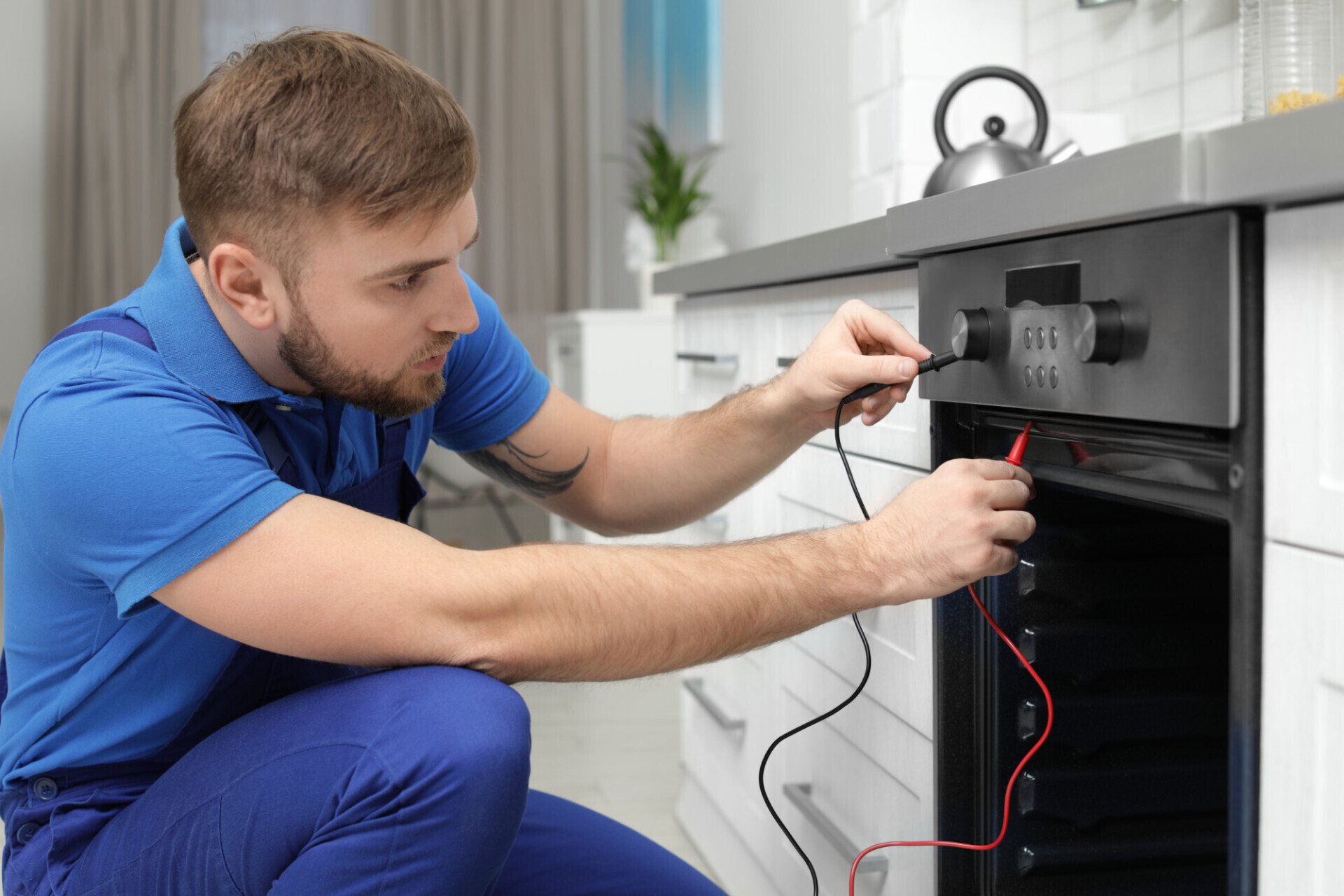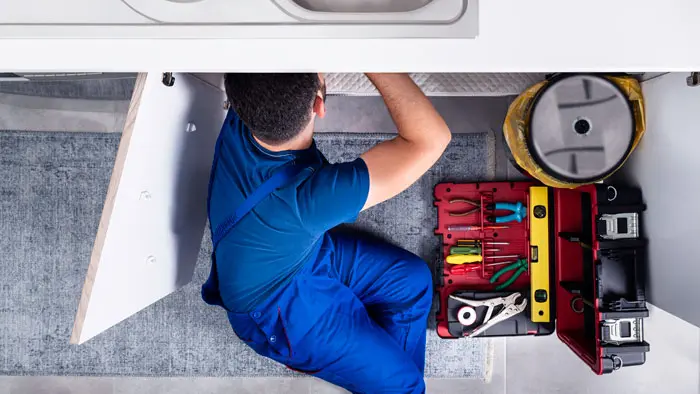The Ultimate Overview to Recognizing Device Fixing at Home
When your fridge stops cooling or your stove declines to warmth, it can really feel frustrating. Understanding appliance repair in your home can save you money and time. You'll learn to acknowledge symptoms, utilize necessary devices, and comply with an organized troubleshooting procedure. Prior to you begin, there are critical security preventative measures you require to take right into account. What are the most usual troubles, and how can you fix them? Let's check out the fundamentals.
Common Appliance Problems and Their Signs
When your devices start acting up, it's important to identify the indications early. Disregarding them can lead to bigger issues and pricey repair services. If your refrigerator isn't cooling properly, you might see cozy areas or condensation developing. This might indicate a stopping working compressor or a blocked vent.Your dishwasher may show troubles via dirty recipes or unusual noises throughout cycles. If you listen to grinding or clanking, it's time to investigate.A cleaning machine that won't rotate or drain can leave you with soaked washing, suggesting a stopped up drain or a malfunctioning pump.Lastly, if your stove's temperature level seems off or it takes forever to pre-heat, you may be managing a defective thermostat. By staying alert to these symptoms, you can deal with concerns prior to they escalate right into significant repair services.
Crucial Tools for Device Fixing
When you're tackling appliance repairs in the house, having the right tools is crucial. Fundamental hand devices like screwdrivers and pliers will certainly assist you disassemble and repair various home appliances, while electrical testing devices guarantee you're functioning securely with electrical wiring. Let's review what you need to obtain started on your fixing journey.
Standard Hand Devices
Having the right devices is essential for reliable appliance repair service at home. Start with a dependable screwdriver set, consisting of both flathead and Phillips kinds, as screws are typical in home appliance setting up. Pliers are also essential; they assist with gripping, twisting, and cutting wires or little components. A pair of needle-nose pliers can get to difficult situations quickly. You'll require an excellent adjustable wrench for tightening or loosening up nuts and screws. An utility knife comes in handy for reducing with product packaging or insulation. Ultimately, don't neglect a sturdy workbench or surface to safely organize your tools and components. With these basic hand tools, you'll be well-prepared to deal with most device repair services that come your means.
Electrical Testing Instruments
Alongside standard hand devices, electric screening tools play a vital function in device repair work. These tools help you detect electrical concerns and warranty home appliances operate safely. A multimeter is vital; it determines voltage, present, and resistance, allowing you to determine problems swiftly. A non-contact voltage tester is another must-have, letting you find live cables without making straight contact, boosting your safety. Secure meters are wonderful for measuring present circulation in cables without disconnecting them, saving you effort and time. Furthermore, circuit testers can promptly examine if outlets are working properly. By utilizing these tools, you'll simplify your troubleshooting process and enhance your fixing abilities, making device maintenance a great deal much easier.
Step-by-Step Guide to Diagnosing Home Appliance Issues
When your appliance breaks down, it can be discouraging, but diagnosing the concern doesn't need to be overwhelming. You'll find out to recognize typical troubles and use reliable repairing techniques. Allow's go through the steps to get your home appliance back in working order.
Usual Device Troubles

Fixing Techniques Clarified

Repairing Major Cooking Area Home Appliances: A Closer Look
Have you ever questioned how to tackle usual concerns with your kitchen area devices? Fixing significant kitchen area appliances like refrigerators, stoves, and dishwashing machines can be easier than you believe. Beginning by identifying the problem-- whether it's a fridge not cooling or a stove that will not heat. Frequently, a simple reset or inspecting the power resource can fix the issue.For fridges, clean the condenser coils and examine the door seals. If your oven's not home heating, evaluate the burner and thermostat. Dish washers could simply require a clean filter or a reset to obtain them back at work. Constantly disconnect the device before diving into fixings to ensure your safety.Don' t fail to remember to seek advice from the individual guidebook for certain repairing tips connected to your version. With a little website bit of perseverance and the right devices, you can with confidence tackle appliance repair work and save money while doing so!

Repairing Washing Appliances: Tips and Techniques
When your laundry devices start breaking down, it can really feel frustrating, but troubleshooting them doesn't have to be an inconvenience. Begin by inspecting the power supply. Verify the home appliance is connected in and the electrical outlet is working. Next off, inspect the door or lid button; a faulty switch can stop the device from operating.For washers, if it's not spinning, look for unbalanced loads. Rearranging the clothes could address the concern. If your clothes dryer isn't home heating, tidy the lint filter and check the air vent for blockages.Listen for uncommon noises; they can show an issue. If your home appliance is leaking, inspect the tubes for splits or loose connections. Record any error codes presented on electronic displays, as they can assist you in recognizing the issue. Finally, get in touch with the individual handbook for specific repairing ideas connected to your model.
Safety And Security Precautions to Take During Repair works
Before you start any kind of home appliance repair work, it's important to focus on security to avoid mishaps or injuries. First, disconnect the home appliance or transform off the circuit breaker to assure no power reaches it while you work. Use shielded devices to minimize the threat of electric shock. Put on security goggles and gloves to protect on your own from sharp edges or debris (Washer dryer repair service Dependable Refrigeration).Make specific your work area is neat and well-lit, so you can see what you're doing. Maintain youngsters and pets away from the location to stay clear of distractions and possible threats. If you're handling gas devices, be added mindful; look for leakages before proceeding.Take your time, and don't rush through fixings. If you feel unclear concerning any action, it's much better to stop briefly and research than to guess. Complying with these preventative measures will certainly assist develop a much safer setting for your DIY device fixing job
When to Call a Professional for Assistance
Exactly how do you understand if it's time to contact a specialist for device fixings? If you've attempted fundamental troubleshooting without success, it's a clear indication. For circumstances, if your appliance still won't begin or reveals unusual sounds after resetting it, do not wait to seek specialist help.When you notice leakages, smoke, or burning smells, prioritize safety and security and call a professional instantly. These issues can lead to even more considerable damage or pose risks to your home.Also, if your home appliance is under service warranty, getting in touch with a professional is frequently the most effective course. They can assure that repair services won't nullify your guarantee, saving you money in the long run.Finally, if you're unsure or unpleasant with complex repairs, it's a good idea to leave it to the specialists. Bear in mind, taking on challenging problems without the best expertise can bring about pricey errors. Depend on a specialist when doubtful!
Often Asked Inquiries
Exactly How Can I Protect Against Home Appliance Troubles in the Future?
To avoid device troubles in the future, you need to carry out normal maintenance, check for damage, clean filters, and avoid overloading. Remaining aggressive will aid prolong their life expectancy and maintain them running smoothly.
What Are one of the most Typical Do It Yourself Appliance Fixing Mistakes?
You could forget safety preventative measures, skip fixing actions, or utilize inaccurate devices when attempting DIY home appliance repair work. Rushing the process or overlooking manufacturer standards can lead to even more considerable issues and costly blunders. Stay person and notified!
Exactly how Do I Know if a Component Requirements Substitute?
You can inform if a component requires substitute by examining for uncommon sounds, leaks, or inconsistent efficiency. If the home appliance battles to operate properly or reveals visible damages, it's likely time for a replacement.
Can I Make Use Of Generic Components for Home Appliance Services?
Yes, you can make use of common parts for appliance repair work, but identify they work - Dependable Refrigeration & Appliance Repair Service Washer repair near me. Common parts might save you cash, but they might affect performance or long life, so consider your alternatives carefully prior to making a decision
What Service Warranties Cover Home Appliance Repair Works?
Many appliance guarantees cover repair work for manufacturing issues, yet they commonly exclude damages from misuse. Inspect your warranty terms thoroughly, as some could call for using qualified technicians and initial parts for protection to continue to be valid.